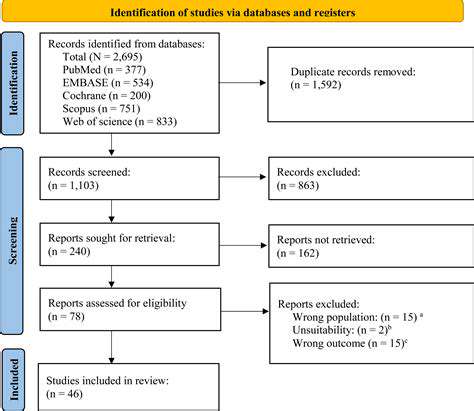Why Weight Management Is Vital for a Healthy Lifestyle
The Importance of Weight Management
The Impact of Weight on Overall Health
Maintaining a healthy weight is crucial for overall health and wellbeing. Obesity and being overweight are associated with a number of serious health conditions including heart disease, diabetes, and certain cancers. These conditions can significantly reduce quality of life and lead to premature death.
In addition to chronic diseases, excess weight can also impact mental health. Individuals struggling with weight may experience low self-esteem, anxiety, or depression due to societal pressures and stigma. This comprehensive impact emphasizes the necessity of weight management.
Regular monitoring of weight alongside a balanced diet and active lifestyle can help mitigate these risks. Understanding the relationship between weight and health can empower individuals to make informed choices that enhance their life quality.
Strategies for Effective Weight Management
Effective weight management requires a multifaceted approach, combining healthy eating, regular physical activity, and behavior modification. A balanced diet rich in fruits, vegetables, whole grains, and lean proteins can provide the nutrients needed while managing caloric intake.
Incorporating physical activities into daily routines is equally important. The Centers for Disease Control and Prevention recommends at least 150 minutes of moderate aerobic activity each week, coupled with strength training exercises twice a week.
Behavioral changes, such as mindful eating and setting realistic goals, can further support weight management efforts. Keeping a food diary, having support from friends and family, or working with a healthcare professional can enhance accountability and motivation.
The Psychological Aspects of Weight Management
Weight management is not purely a physical challenge; it is also psychological. Emotional eating, food cravings, and stress can lead to weight gain or difficulty in losing weight. Understanding these triggers is vital for effective management.
Mindfulness techniques, such as meditation and yoga, can help individuals develop a healthier relationship with food and improve emotional resilience. By recognizing emotional triggers, individuals can implement strategies to cope without resorting to unhealthy eating habits.
Building a support system, whether through friends, online communities, or professional counseling, can provide encouragement and help navigate the complex feelings surrounding weight management. Recognizing the psychological components is essential for sustained health changes.
The Role of Education and Awareness
Education plays a critical role in successful weight management. Understanding nutritional labels, portion sizes, and the importance of balancing macronutrients can empower individuals to make healthier choices. nutritional literacy can significantly influence eating habits and health outcomes.
Additionally, awareness campaigns about the risks associated with obesity can encourage individuals to prioritize their health. Public health initiatives can provide resources and support that enable communities to foster healthier environments.
Continued education on weight management strategies ensures that individuals are equipped with the knowledge to make informed, health-promoting decisions throughout their lives. As awareness grows, the stigma surrounding weight may diminish, and more people can pursue healthier lifestyles.
Factors Influencing Weight Management

Genetics and Metabolism
One of the primary factors that influence weight management is genetic makeup. Individuals may inherit traits that affect their metabolism, appetite, and body fat distribution, making it more challenging for some to maintain a healthy weight.
Furthermore, metabolism plays a crucial role in how efficiently the body converts food into energy. A faster metabolism allows for more calories to be burned, which can aid in weight management.
Dietary Choices
The food we choose to eat significantly impacts our weight. Opting for nutrient-dense foods over calorie-dense options not only supports long-term weight management but also overall health.
Incorporating a balanced diet that includes fruits, vegetables, whole grains, and lean proteins can help regulate weight and reduce the risk of chronic diseases.
Physical Activity
Regular physical activity is essential for effective weight management. Engaging in both aerobic exercises and strength training can boost metabolic health and increase muscle mass, which helps burn more calories even at rest.
Moreover, physical activity contributes to overall well-being, reducing stress levels and improving mood, which can further support healthy eating habits and weight maintenance.
Lifestyle and Behavioral Factors
Stress, sleep quality, and emotional health play significant roles in how we manage our weight. For instance, poor sleep can disrupt hormonal balance, affecting appetite regulation and leading to weight gain.
Coping strategies for stress, such as mindfulness or exercise, can not only enhance mental resilience but also aid in maintaining a healthy weight by promoting healthier choices.
Effective Strategies for Weight Management

Understanding Caloric Balance
Caloric balance is the relationship between the number of calories consumed through food and drink and the number of calories expended through physical activity and bodily functions. Maintaining a caloric deficit is essential for weight loss, while a caloric surplus aids in weight gain. It is crucial to monitor your daily caloric intake alongside your level of physical activity.
For effective weight management, understanding how to create a caloric deficit or surplus can be a powerful tool. This can be achieved through dietary modifications and increasing physical activity levels. Be mindful that drastic changes can be counterproductive and may lead to unhealthy eating habits.
Tracking your food intake can help you stay informed about your caloric balance. Common methods include using mobile apps or food diaries, which enable individuals to keep a close eye on their consumption patterns. This awareness is a key component of effective weight management.
The Role of Nutrition
Nutrition plays a vital role in weight management as it influences overall health and well-being. A balanced diet rich in whole foods, fruits, vegetables, lean proteins, and whole grains supports both physical health and weight goals. Avoiding highly processed and sugary foods is essential to maintain a healthy weight.
Understanding macronutrients—carbohydrates, proteins, and fats—and how they contribute to your diet can further optimize weight management efforts. Each macronutrient serves unique functions in the body and should be consumed in proportion to personal health goals. Adjusting these proportions can lead to better meal choices and improved energy levels.
Cooking at home can help individuals develop healthier eating habits and better control over their nutritional intake. Experimenting with new recipes and cooking techniques can make healthy eating enjoyable and sustainable in the long run.
Physical Activity and Exercise
Regular physical activity is a cornerstone of successful weight management. It helps burn calories, improves metabolism, and enhances overall health. Incorporating a mix of aerobic exercises, strength training, and flexibility workouts can help individuals achieve their weight loss or maintenance goals.
Setting realistic and attainable exercise goals can also boost motivation. For example, starting with short workouts and gradually increasing intensity can make the process less overwhelming. Finding an enjoyable exercise routine can promote consistency and make it easier to stick with long-term.
Additionally, seeking social support or joining fitness groups can enhance accountability. Sharing goals and achievements with friends or exercise buddies can keep you motivated. Consider involving family in healthy activities to create a supportive environment.
Mental and Emotional Aspects of Weight Management
The psychological components of weight management can significantly impact progress. Emotional eating, stress, and body image issues often influence food choices and behaviors. Recognizing these triggers can empower individuals to make more conscious decisions surrounding their eating habits.
Developing a positive mindset is crucial for long-term success. Affirming self-worth beyond just weight can foster a healthier relationship with food and body image. Mindfulness techniques, such as meditation and journaling, can also help in managing emotions and cravings.
Seeking professional help, such as from a registered dietitian or therapist, can provide additional support. These professionals can offer personalized strategies for overcoming emotional obstacles to weight management, leading to improved outcomes.
The Importance of Setting Realistic Goals
When embarking on a weight management journey, it’s essential to set realistic and measurable goals. Achieving smaller milestones can promote a sense of accomplishment and motivate continued progress. Unrealistic expectations can lead to disappointment and may derail your efforts.
SMART (Specific, Measurable, Achievable, Relevant, Time-bound) goals can provide a framework for defining objectives. For example, aiming to lose 1-2 pounds per week is a healthier and more sustainable approach rather than striving for rapid weight loss. This method fosters gradual and lasting change.
Regularly reassessing your goals and progress can help keep motivation high. Celebrate each success, no matter how small, and adapt goals as needed based on your evolving circumstances. Establishing a system of accountability, like checking in with a support group, can reinforce commitment to your weight management plan.
The Long-Term Benefits of Weight Management
The Impact on Overall Health
Maintaining a healthy weight is crucial for overall well-being. It significantly reduces the risk of developing chronic conditions such as heart disease, diabetes, and hypertension. When individuals keep their weight in check, they are more likely to experience improved cardiovascular health, as well as better blood sugar regulation.
Moreover, weight management can enhance the body's immune function. A balanced weight allows the immune system to function optimally, reducing the likelihood of infections and illnesses. This is particularly important as we age, as the body's natural defenses may weaken over time.
Being at a healthy weight also contributes to better joint health. Excess body weight can lead to increased wear and tear on joints, especially in the knees and hips. By maintaining a healthy weight, individuals can reduce the strain on these joints, alleviating pain and the risk of conditions such as osteoarthritis.
Additionally, effective weight management promotes better mental health. Studies show that individuals with a healthy weight tend to experience lower levels of anxiety and depression. Engaging in regular physical activities that accompany a weight management regimen can further release endorphins, leading to improved mood and overall happiness.
Improved Quality of Life
Achieving and maintaining a healthy weight can dramatically enhance quality of life. Individuals often experience increased energy levels, enabling them to engage in activities they enjoy, whether that be sports, hiking, or simply playing with children or grandchildren. This active lifestyle not only benefits physical health but also fosters social interactions and friendships.
Furthermore, managing weight effectively can lead to better sleep patterns. Studies indicate that individuals with a healthy weight have a lower risk of sleep apnea and other sleep disorders. A good night’s sleep is crucial for cognitive health, emotional regulation, and overall productivity during the day.
Another benefit of weight management is improved self-esteem and confidence. Many people who achieve their weight goals report feeling better about themselves and being more willing to engage in social situations. This newfound confidence can lead to pursuing new opportunities, both personally and professionally.
Finally, weight management can promote longevity. A healthy weight is associated with a longer lifespan, as it correlates with a lower risk of many diseases that can lead to premature death. By prioritizing weight management, individuals are not just enhancing their current quality of life, but also setting the stage for a healthier, longer future.



